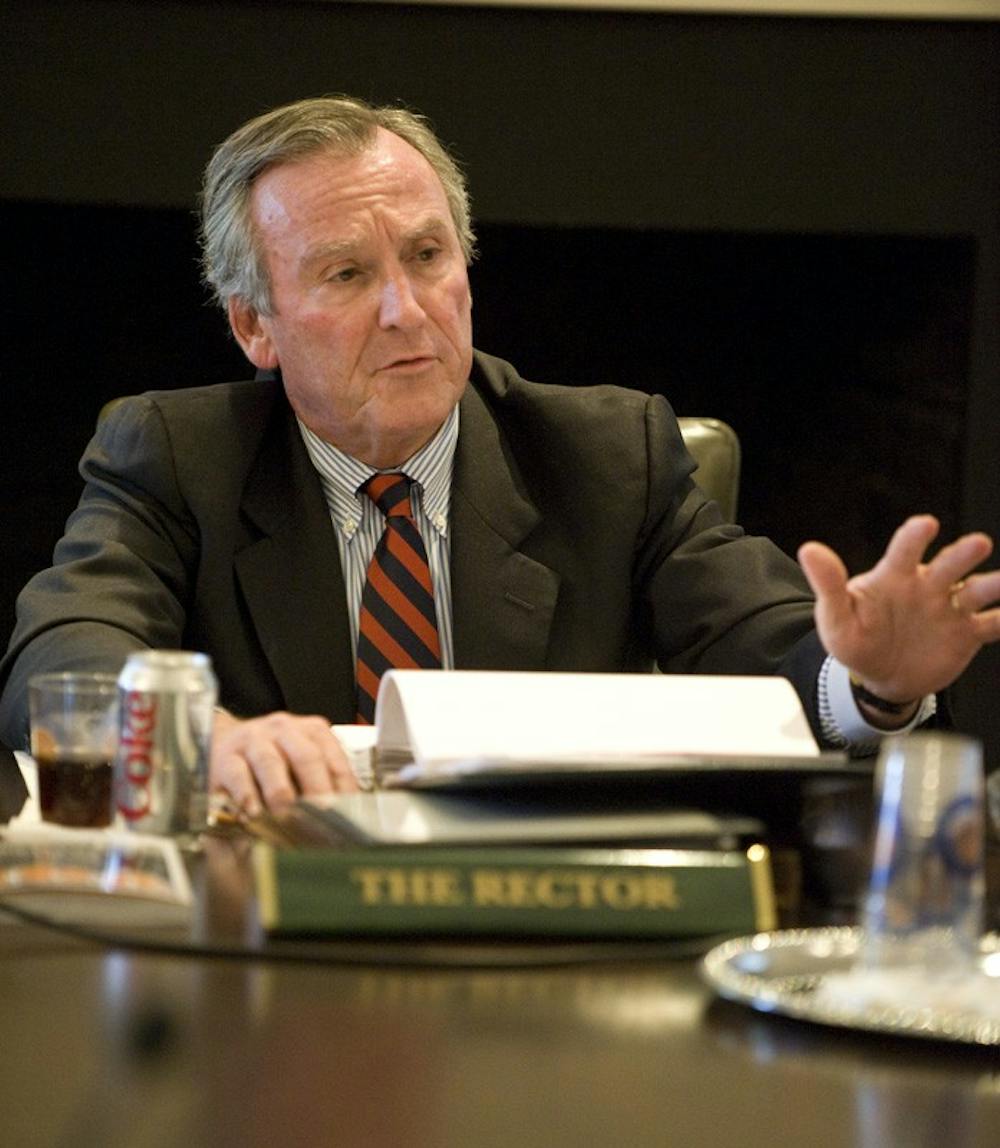The Board of Visitors met yesterday to discuss changes to the University's fiscal policies in reaction to current state budget reductions.
During the past two years, the commonwealth has dealt with a revenue shortfall of more than $7 billion - almost twice as severe as during the 2002 fiscal year economic downturn, said Colette Sheehy, vice president for management and budget. Higher education as a whole has experienced an assessed $500 million in budget cuts, she added.
"For the first time in history, an in-state student is now paying more to attend U.Va than the state is supplying," Sheehy said.
The University received $20 million in stimulus funds this year to buffer the impact of a $52 million - or 31.8 percent - reduction in general fund appropriation levels from the 2007-08 fiscal year, Sheehy said. But money from stimulus funds is only temporary and will run out in the 2011-12 fiscal year.
"The state now supports the lowest percentage that it ever has of the University's budget," Sheehy said, adding that it is currently at 6 percent for all divisions of the University and 10 percent of the academic division budget, Sheehy said.
Sheehy said the University has taken reductions across several areas, such as eliminating 160 faculty and staff positions, moving some schools' expenses into private funds, reducing expenditures and trying to identify other sources of money.
Even with the budget cuts, though, she said, the University will continue to invest in its priorities. Rector John Wynne noted that the University is the least publicly funded of all state institutions but tends to out-perform peer institutions in terms of efficiency and overall development.
"Despite the reductions, we are making new investments in the University and trying to position ourselves for the recovery," Sheehy said. Since 2006, $174.3 million has gone toward faculty and staff salaries, research, Commission of the Future of the University initiatives, AccessUVa and the long-term objective of deferred maintenance, among other priorities.
Taking a realistic look at the future, it is difficult to see how higher education will come to the top of Virginia legislators' list of priorities when competing with Medicaid, new prisons, K-12 education and retirement funds, Sheehy said, and so the Board of Visitors "is going to have to look seriously at tuition and private funds."
Leonard Sandridge, executive vice president and chief operating officer, also emphasized the possibilities that arise from closely examining tuition costs and private fundraising efforts. For now, University tuition is still priced at a level relative to the cost of education, he said. In terms of fundraising, the University has great potential for growth.
"Our investment now needs to be in our people and in our programs," he said.
The Finance Committee also sought approval for a new short-term investment policy. This new policy would formalize practices put in place prior to the financial crisis, said Jim Matteo, assistant vice president for treasury operations and fiscal planning. Investment objectives would shift away from maximizing returns and more toward safety and liquidity, placing more parameters around general guidelines.
"We need to more clearly define and document our short term investment practices," Matteo said, adding that this policy would really "tighten things up."
Sandridge noted that though the committee would not normally move to constrain its investment policy, it would be "the prudent thing to do" for now. He also noted that this policy more accurately reflects the University's current investment approach.
Chris Brightman, CEO of the University of Virginia Investment Management Company, said the University's long-term performance remains healthy and a considerable amount of assets are currently in long-term equity funds. During the last year, large colleges and universities generally have experienced lower investment returns compared to small colleges and universities, and large endowments like the University's across the country have suffered greatly. Brightman said the University's 20 percent loss is right on par with the median 21 percent loss seen elsewhere.







